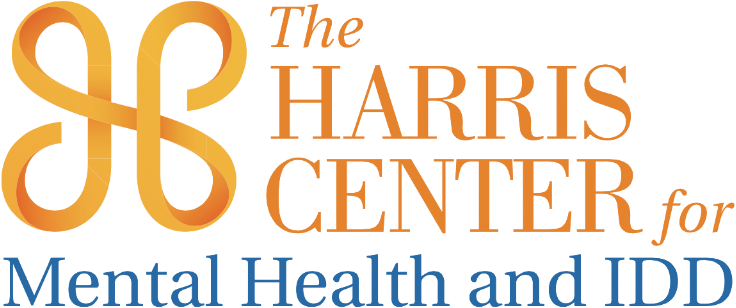
Trauma can deeply affect our lives, sometimes in ways that may be initially unexpected and profound. Recognizing the signs and symptoms of trauma is important so that individuals can receive the support they need.
"It's important to acknowledge the impact of trauma on your life so you can receive the appropriate treatment,” said Dr. Luming Li, Chief Medical Officer of The Harris Center for Mental Health and IDD. “We have many resources available at The Harris Center.”
It’s imperative to understand what trauma is, how people cope with trauma, and ways to treat it.
What is Trauma?
Trauma is a pervasive problem that results from exposure to an incident or series of events that are emotionally disturbing or life-threatening, with lasting adverse effects on the individual’s functioning and mental, physical, social, emotional, and/or spiritual well-being. Experiences that may be traumatic include physical, sexual, and emotional abuse, childhood neglect, living with a family member with mental health or substance use disorders, sudden, unexplained separation from a loved one, poverty, racism, discrimination, natural disasters, and combat.
“Trauma can occur at any age and can have debilitating long-term effects on children’s developing brains. I have observed that exposure to adverse childhood experiences (ACEs) can occur across many different social contexts and groups,” said Dr. Li.
Coping with Trauma
People affected by trauma often develop coping mechanisms to manage their emotional and physical pain. Some of these strategies, such as unhealthy eating, tobacco, or substance use, may initially seem to provide relief; however, engaging in these unhealthy practices often worsens the situation. These maladaptive behaviors can lead to increased anxiety, deeper social isolation, and the development of chronic diseases.
Emotional and Physical Symptoms of Trauma
Trauma often evokes intense emotional responses, including fear, sadness, guilt, or anger. Individuals coping with trauma may also experience physical responses such as trembling, sweating, a rapid heartbeat, nausea, or dizziness. Furthermore, trauma can impact physical health, leading to symptoms such as headaches, digestive issues, or chronic pain.
“Some people may carry decades of undertreated trauma, reliving their nightmares through physical manifestations like sweaty palms, elevated blood pressure, and palpitations when faced with stimuli that trigger memories of their past trauma,” said Dr. Li.
After experiencing these responses to trauma, individuals may become guarded, find it difficult to trust others, and avoid situations that trigger trauma-related symptoms.
Post-Traumatic Stress Disorder
PTSD is a psychiatric disorder that can occur in people who have experienced or witnessed a traumatic event, such as combat, natural disasters, serious accidents, or physical or sexual assault. Individuals with PTSD may experience intrusive thoughts, flashbacks, nightmares, and severe anxiety, often leading to avoidance of triggers associated with the trauma. PTSD can significantly impair daily functioning and quality of life, highlighting the importance of timely intervention and support for those affected. Some people may experience PTSD symptoms immediately after a traumatic event, while others may not develop symptoms until months or even years later.
Growth from Trauma
The concept of post-traumatic growth acknowledges that while trauma can have devastating effects, it can also lead to positive psychological changes. People who experience post-traumatic growth often find a new appreciation for life, a deeper sense of personal strength, and a greater appreciation for their relationships. They may also experience enhanced spiritual growth, a heightened sense of compassion for others, and a newfound clarity about their life priorities.
Seeking Care and Treatment
Treating trauma typically involves a combination of therapies aimed at addressing both the emotional and physical aspects of the trauma. Trauma-focused therapy helps individuals process traumatic memories and develop coping mechanisms. Medications like antidepressants and anti-anxiety medications may be prescribed to manage symptoms such as depression, anxiety, and sleep disturbances. Support groups can provide validation and a sense of community. Engaging in self-care activities like exercise and mindfulness can promote physical and emotional well-being. Education about trauma and its effects can help individuals understand their experiences. Finally, having a strong support network of friends, family, and mental health professionals is crucial in the healing process. Working with a qualified mental health professional to develop a personalized treatment plan is important to address individual needs and circumstances.
The Harris Center for Mental Health and IDD is dedicated to offering exceptional, cost-effective services to enable individuals with mental disabilities to live with dignity and participate fully in our community. Our sliding scale rate schedule ensures access to care regardless of financial means. For trauma survivors, our comprehensive approach addresses both physical and psychological aspects, with licensed counselors available 24/7. If you or someone you know needs help, please call our crisis line at 713-970-7000.




